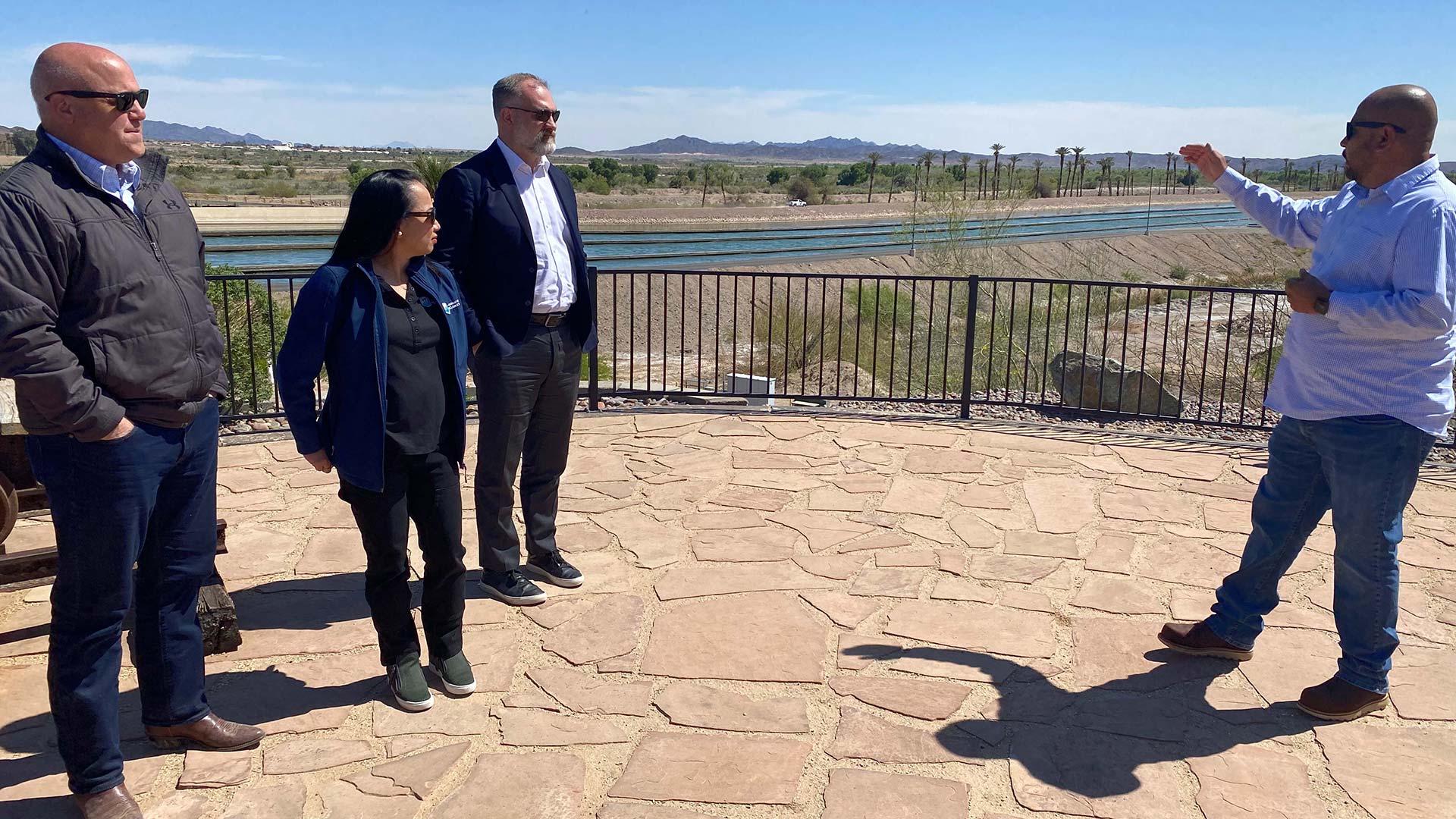 White House Infrastructure Implementation Coordinator Mitch Landrieu, Bureau of Reclamation Commissioner Camille Calimlim Touton and Senior Advisor to the President and Deputy Secretary of the Interior Tommy Beaudreau, during a visit to the Imperial Dam on Tuesday, April 5.
White House Infrastructure Implementation Coordinator Mitch Landrieu, Bureau of Reclamation Commissioner Camille Calimlim Touton and Senior Advisor to the President and Deputy Secretary of the Interior Tommy Beaudreau, during a visit to the Imperial Dam on Tuesday, April 5.
The Biden-Harris Administration announced on Tuesday, a nearly $585 million investment from the Bipartisan Infrastructure Law (BIL) to repair aging water infrastructure and address drought in the West.
Funding will be allocated to 83 projects in 11 states.
Bureau of Reclamation Commissioner, Camille Calimlim Touton said, “Among the projects selected are to increase canal capacity, provide water treatment for tribes, replace equipment for hydropower production and provide necessary maintenance to aging project buildings.”
In Arizona, about $28 million will be dispersed across four projects of rehabilitation services such as dredging and aged pipe replacement within the Colorado River Basin and Yuma, Arizona.
The Colorado River Basin’s Imperial Dam will also receive a little over $8 million in funding.
Deputy Secretary of the Interior Tommy Beaudreau says funding from the Inflation Reduction Act (IRA) will also be allocated towards conservation of community water supplies and delivery systems.
Referencing a 23-year drought crisis, Beaudreau said it has culminated in critically low reservoir conditions. About $13 billion from the BIL and IRA combined are for drought resilience.
“The prolonged drought crisis is driven by the effects of climate change, including extreme heat and years of low precipitation,” Beaudreau said.
White House Senior Advisor Mitch Landrieu said the investments include about $2.1 billion for Indian water rights settlements.
“This is not simply about drought resilience but also about creating water security in the west and for the country and the conservation of the very important Colorado River system,” Landrieu said.

By submitting your comments, you hereby give AZPM the right to post your comments and potentially use them in any other form of media operated by this institution.